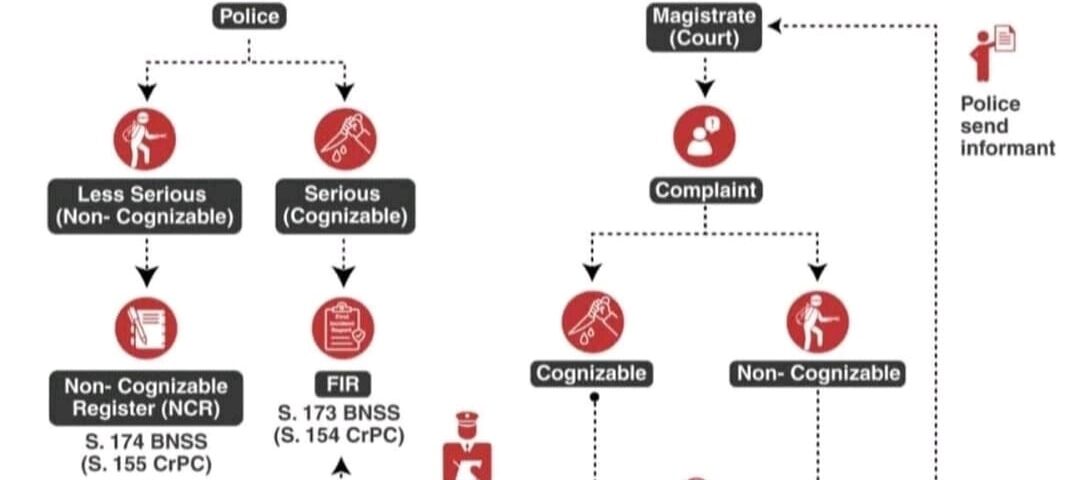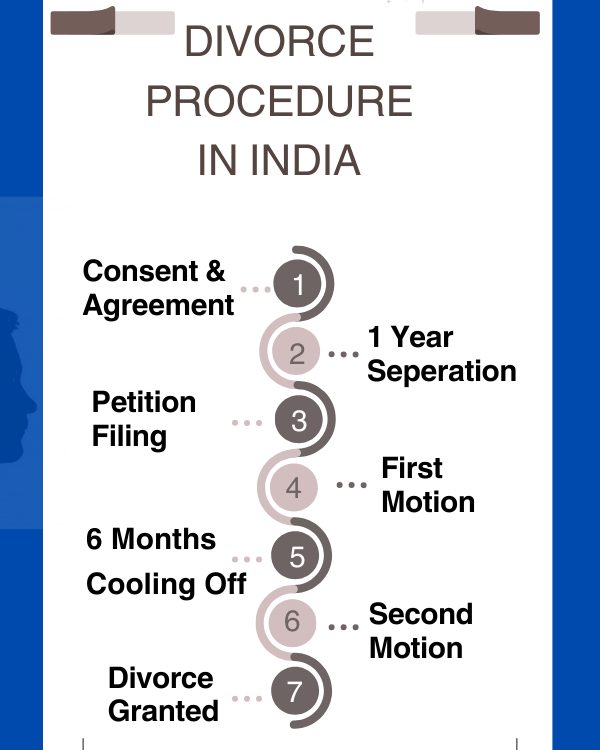- Top-rated Best Divorce Lawyer in India
- +91 9616166166
- Top Mutual Divorce Lawyer in India
FIR to Investigation: Step-by-Step Guide to the Criminal Justice Process in India

Top Divorce Lawyer: How Much Does a Divorce Lawyer Charge in Delhi?
May 10, 2025
Mutual Divorce Procedure in India: A Complete Step-by-Step Guide
June 23, 2025What Happens After a Crime is Reported?
When a crime occurs, it's important to know what steps follow — whether you're a victim, a witness, or someone accused. This guide will help you understand the entire legal process from lodging an FIR to police investigation and finally, reporting to the court.
What is an FIR?
An FIR (First Information Report) is a written document prepared by the police when they receive information about a cognizable offence — i.e., a serious crime like murder, rape, theft, or kidnapping.
- Section 154 CrPC / Section 173 BNSS governs the FIR process.
- Once an FIR is registered, the police begin an official investigation.
Understanding Crime Classification
Crimes are classified into two categories:
| Type | Description | Examples |
|---|---|---|
| Cognizable | Serious offences where police can arrest without a warrant. | Murder, rape, theft, etc. |
| Non-Cognizable | Less serious offences requiring court permission to investigate. | Defamation, public nuisance, etc. |
Police Path vs Court Path
There are two main ways a crime can enter the legal system:
1. Police Path- If you go directly to the police station:
- They assess if the crime is non-cognizable or cognizable.
- For non-cognizable offences, they make a Non-Cognizable Report (NCR) and may direct you to the magistrate.
- For cognizable offences, they register an FIR and start the investigation.
- You can also file a complaint directly with the magistrate.
- The magistrate evaluates whether the offence is cognizable or non-cognizable.
- For cognizable offences, the magistrate can order police to register an FIR.
- For non-cognizable offences, the court may direct the police to investigate.
Investigation to Court
Once the FIR is filed:
- Police conduct the investigation.
- A police report (chargesheet) is prepared.
- It is submitted to the Magistrate for further legal proceedings.
Relevant Legal Sections
- Section 154 CrPC / Section 173 BNSS – FIR for cognizable offences
- Section 155 CrPC / Section 174 BNSS – Procedure for non-cognizable cases
- Court's power – To direct FIR registration or investigation
Why This Matters to You
If you're involved in a case — as a victim or accused — understanding the FIR to investigation flow helps you know your rights, anticipate procedures, and act wisely.
Need Legal Help with FIR, Investigation, or Criminal Case?
At Top Divorce Lawyer Ghaziabad, we don’t just handle matrimonial disputes — we also offer criminal law services including:
- Legal assistance in lodging or quashing FIRs
- Representation in court proceedings
- Guidance through the investigation process
- Bail and anticipatory bail applications
Contact Us
- Top Divorce Lawyer – Ghaziabad
- Call/WhatsApp: [+91 9616166166]
- Website: www.topdivorcelawyer.co.in



